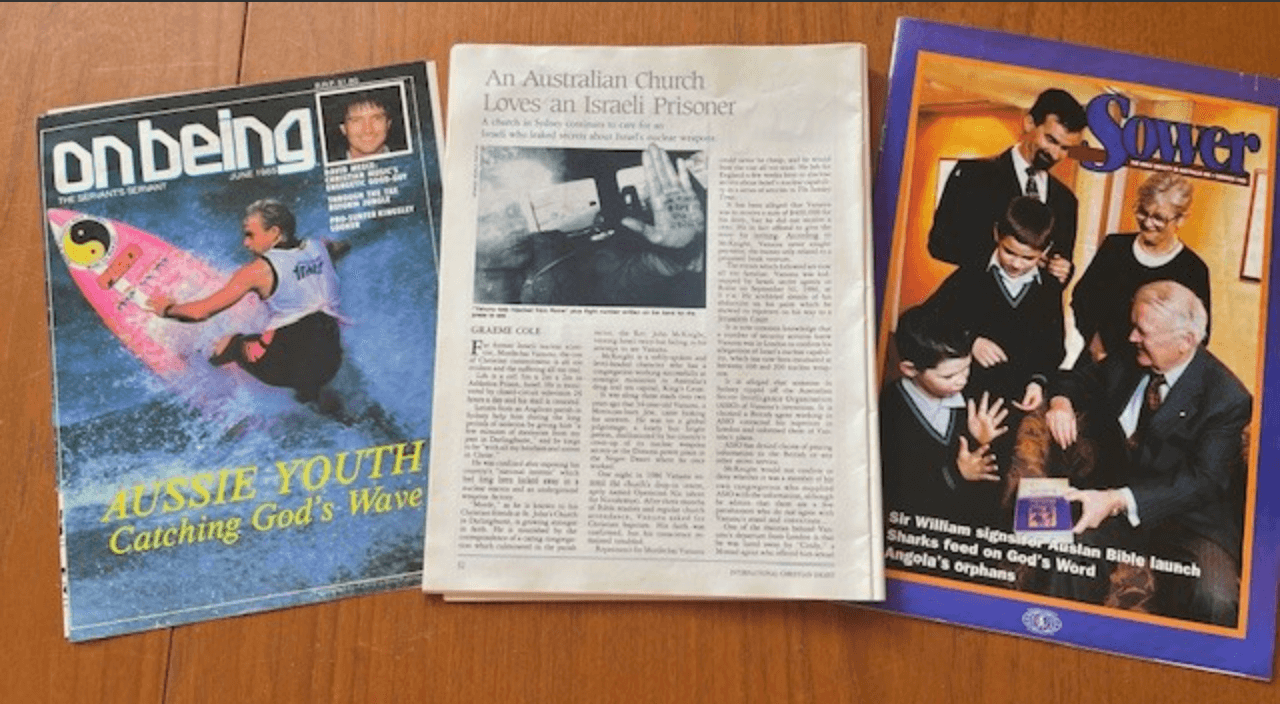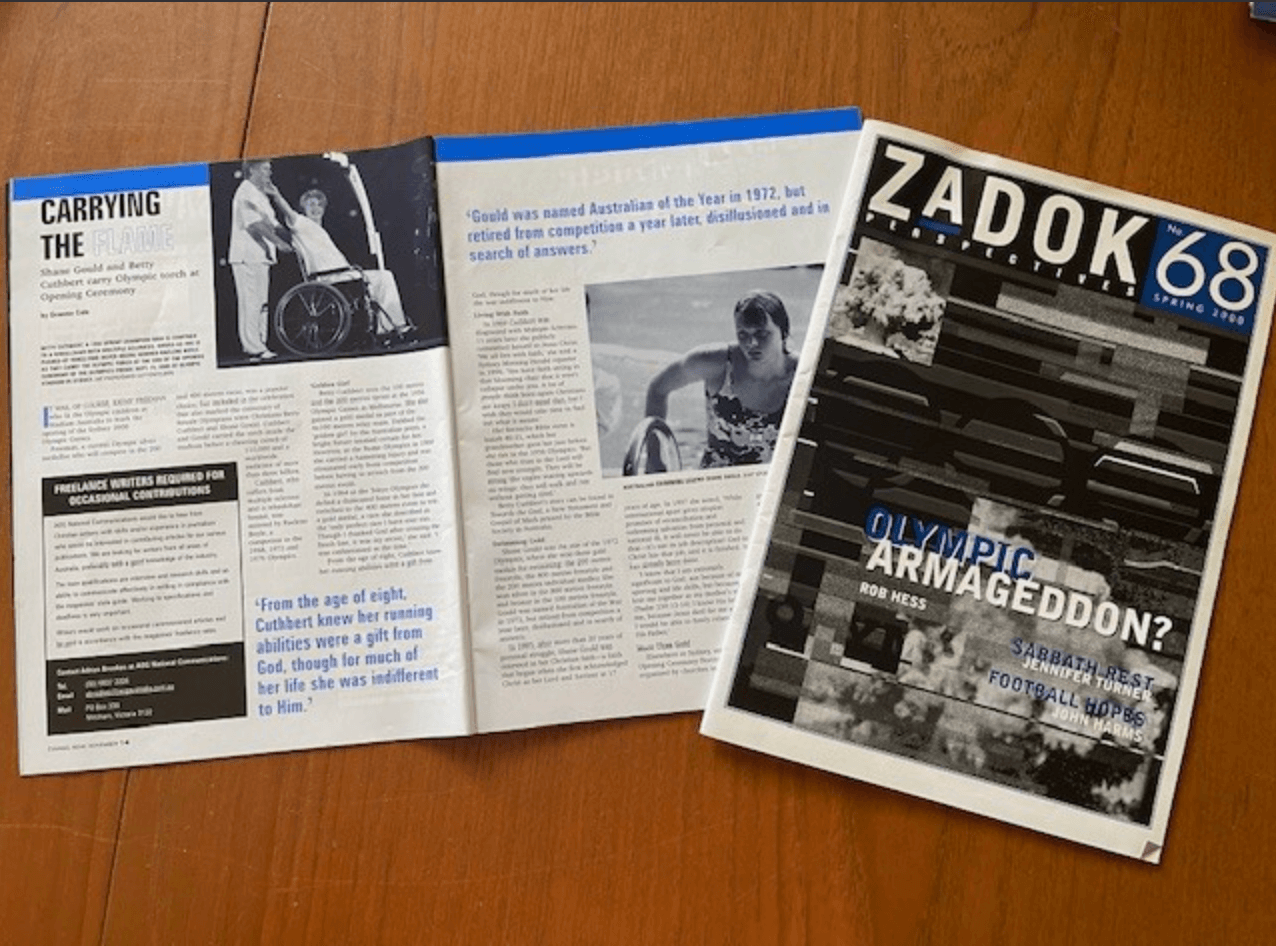The End of the Australasian Religious Press Association: Where to from here?
Thursday, 10 October 2024
| Graeme Cole
In 1974, Australian Christian editors and journalists were drawn together to engage in the realpolitik of publishing: soaring mailing and printing costs. It was a lobby group of hatches, matches and dispatches that eventually went to Canberra and met with Australia Post and the responsible minister. For denominational and para-church publications it was an emergency greater than the Middle East oil crisis, giving credence to the time-honoured rhetorical – publish or perish.
And so, the Australasian Religious Press Association (ARPA) was born from a pressing and practical need, although the founding members also discovered they shared a swag of other common concerns. Those imperatives were realised at the first ARPA conference held in Canberra in April 1974.
From those early beginnings, ARPA grew into the paradigm of Christian publishing in Australia. Hundreds of publications and individual members from a myriad of denominations and para-church organisations were under its brolly. Much later, publications, journals and individuals from New Zealand and the South Pacific were embraced by full membership.
Christian journalists are often solitary souls, writing and editing publications with little resources or other staff. ARPA provided a place where they could be heard, supported and sometimes consoled. They were acknowledged by their peers for their outstanding work in news or feature writing, headline writing, photography, opinion pieces, news releases, best theological piece, best column, best website and others. The Premier Annual Award of ARPA for overall outstanding excellence in religious journalism was the Gutenberg, won by Zadok in 2021 and by me in 2016. It is an award that captured and embodied much of ARPA and has been cherished by many.
My first ARPA conference was in Brisbane just after I had left The Australian newspaper. I had recently been appointed Director of Communications at Anglicare Sydney and editor of its publication. Since then, I have written for and edited several other denominational publications and as a freelancer for many others, including independents like On Being (Alive!) and Zadok.


At that first ARPA event, I found a group of switched-on Christian journalists and editors who understood their craft and profession and were dedicated to both the practices and ideals I embraced in my calling. And so it has been since: a deep and enduring fellowship of Christian editors, writers and journalists supporting each other in a myriad of ways, from writing and editing, to layout and design, funding, distribution, maintaining integrity while dealing with corporate hegemony and theological demands, dealing with the creeping tide of banal marketing pomposity, the move to desktop publishing and finally the tsunami of digital media.
Those early days had their sequel at the recent 50th Anniversary Jubilee Conference on the Gold Coast. It was ARPA’s last. There is a time – as the conference working title suggested – for change. After COVID and a subsequent large drop in membership numbers, and the rapid move to digital, rising costs, and the idea of a ‘print press association’ being outdated, the epistle was clear. The conference members voted to wind up ARPA. The lack of economic efficacy was also overwhelming.
However, the conference heard from former ARPA presidents and executives about the challenges they faced and addressed during the past five decades. It was encouraging to hear that ARPA has been both apostolic and evangelical.
But this wasn’t a time for nostalgia or handwringing. Participating in a panel discussion on the future of Christian journalism and media in Australia, it was self-evident that stories existed and needed to be told. They still could be sourced in our churches and parishes but also in the broader ministries and services of education, health, community, welfare services and aged care. Words will still have a vital place in Christian media. No latter-day Luddites were present.
More than 5,000 mainstream journalists have been made redundant in the past decade. Senior journalists have been the ones encouraged to take termination payments. This trend has been reflected in the Christian press. But there’s also been a massive loss of knowledge and skill, resulting in less experience in newsrooms. What stories would have been found and written with a more experienced hand at the tiller? It is vitally important that we identify, skill and encourage young writers and journalists to pass on industry and professional knowledge. It is pleasing that Ethos publications are already actively doing this in so many ways.
What will the future look like?
Rupert Murdoch recently predicted that there will not be any print newspapers in a decade. None of us at the conference were entirely pessimistic about the future. However, there may be more nuanced approaches: Do Christian journalists become PR people sourcing good news stories? Does this mean the church will lose its prophetic edge? Who will call the church to account if publications (whether print or digital) disappear?
Bigger questions need to be posed as we chart a new path:
- What do we now define as communications and media?
- How do those definitions apply within Christian media?
- What does the church want from Christian media and comms? What are the objectives?
- What are the key drivers?
- How do we get there? What are the steps?
- Will the approach of denominational media be different to para-church agencies, welfare bodies, aged care providers and schools?
Much is often made of cross-cultural mission. For Christian journalists and media practitioners it is their bread and butter: they provide a link between the Christian faith and Australian society. They work as interpreters, translators and sometimes cultural ambassadors. Ignore this professional intuition and resource and we diminish a vital ministry.
Media and comms are integral not only to worship and evangelism but to advocacy, pastoral care, social justice and so on. Digital media platforms and digital subscriptions may be the future, but they are only part of the answer.
As the traditional fishing holes diminish and dry up, governing church boards and committees may narrow their focus as they become anxious for tangible results in a more complex world. Reportable metrics and technological change will drive this process. Boards and committees are more likely to follow the lead of the mainstream: rationalise and cut. It may not be in the text but in the sub-text: efficacy will be judged according to economic return. As with our society, the numeric professions dominate the discourse. It is here that Christian media practitioners and journalists must find their voice within the church, or we will stumble into the information and digital age in an ad hoc and piecemeal way.
We can all draw strength from the night the Lord spoke to Paul in a vision (Acts 18:10): ‘Do not be afraid; keep on speaking, do not be silent. For I am with you, and no one is going to attack and harm you, because I have many people in this city’. He has many people in this suburb, this church, this town, this city and this country who are His. They all have a story to tell … and there are ears to hear and eyes to see.
Graeme Cole is a veteran journalist and public affairs executive. He is the 2016 winner of the Gutenberg Award for excellence in religious journalism.
Image credits:
Main photo: ARPA 50th Anniversary Gathering by John Sandeman at The Other Cheek.
Photos in article by Graeme Cole:
First photo: Article by Graeme Cole on Christian professional surfers in On Being (Alive!) magazine (June 1985); Israeli nuclear scientist Mordechai Vanunu in International Christian Digest (December-January 1988-1989); and the launch of the Bible Society's Auslan Bible by the Governor General Sir William Deane in The Sower (Summer 1999).
Second photo: Article on Australian Christian Olympic greats Shane Gould and Betty Cuthbert carrying the Olympic torch and handing it over to Cathy Freeman during the 2000 Sydney Olympics in Evangel Now! (November 2000); and the axing of South Sydney, where Cole was lay chaplain at the time, from the National Rugby League, presented as a spiritual and social justice issue, in Zadok Perspectives (Number 68, Spring 2000).